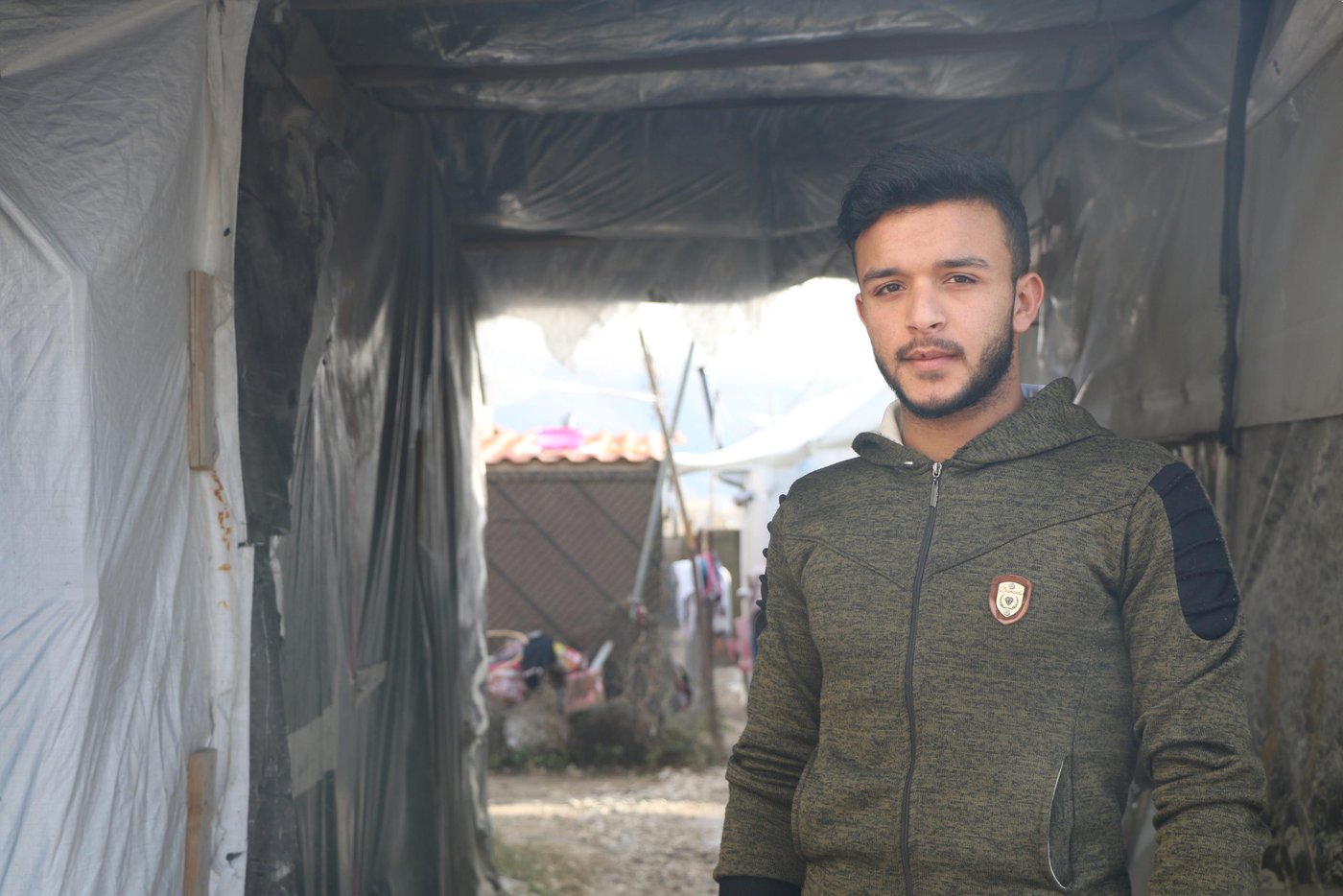Jeg drømmer om…utdanning og en karriere i cricket
Belal (15) er en pakistansk flyktning og bor i Gulan flyktningleir sørøst i Afghanistan. Her risikerer tusenvis av flyktningfamilier å miste sine grunnleggende rettigheter, fanget midt i en tvist mellom de afghanske og pakistanske myndighetene, og forlatt av det internasjonale samfunnet.

Belal er student, og leder også et cricketlag. Han har blitt et forbilde for andre barn på samme alder. Han ønsker å reise tilbake til hjemlandet og bli en nasjonal cricket-spiller en dag.
– Jeg skulle ønske at det var en videregående skole og at vi kunne fortsette studiene, før det er for sent. Jeg vet hvor vanskelig livet er i denne flyktningleiren, og jeg vet at det er vanskelig for hver og en av oss. Gjennom cricket ønsker vi å overvinne noen av utfordringene sammen, sier Belal.
Jeg ønsker meg…mitt eget rom
Jumana (47) bor i Al Shati flyktningleir i nærheten av Gaza by, Palestina. Familien hennes er en av tusenvis i Gaza som sliter med å takle økende arbeidsledighet og minkende støtte fra myndighetene.

Fembarnsmoren Jumana sliter med å få endene til å møtes og kjemper for å hindre at familien blir kastet ut fra rommet de bor i. Hun har nylig mottatt kontanter som skal gå til leie av Flyktninghjelpen, men bekymrer seg for hva fremtiden vil bringe.
– Vi er livredde for å ende opp på gaten etter at kontant-for-leie-hjelpen fra Flyktninghjelpen er ferdig. Vi tenker alltid på hva vi skal gjøre etter prosjektets slutt. Jeg drømmer om å ha et rom for meg selv en dag, sier Jumana.
Jeg drømmer om…fred og å gjenforenes med familien
Shamsedine (44) er syrisk flyktning og bor i Bekaa-dalen øst i Libanon. Libanon er vertskap for mennesker på flukt fra Syria og Palestina, og har det største antallet flyktninger per innbygger i verden. Dette har lagt press på offentlige tjenester. Flyktninger kan ikke arbeide lovlig, og det er vanskelig å bevege seg fritt uten frykt for arrestasjon eller internering.

– Mitt ønske for dette nye året er at krigen i Syria skal ta slutt slik at Syrias barn kan være trygge. Landet trenger stabilitet, slik at folk kan dra tilbake og gjenforenes. Før krigen var familiene sammen, og kjære så alltid hverandre. Jeg har ikke sett broren min på fem år. Han bor i en annen del av Libanon, og de økonomiske forholdene våre tillater det ikke, sier Shamsedine.
Jeg ønsker meg…at barna mine skal få en god utdanning
Fatima (39) er syrisk flyktning og bor i Libanonfjellene vest i Libanon.

– Håpet er borte, men vi har drømmer. Jeg drømmer at min familie kan bosettes i et nytt land, slik at barna mine kan fortsette utdanningen sin. Det er alt jeg vil, at de kan få en god utdanning for å få en bedre fremtid, sier Fatima.
I drømmer om…å bli en ortopedisk kirurg
Fatin (11) er syrisk flyktning og bor også i Libanonfjellene, Libanon.

– Jeg drømmer om å bli en ortopedisk kirurg når jeg blir voksen, slik at jeg kan hjelpe andre mennesker i nød som er i en lignende situasjon som pappa, sier Fatin.
Jeg ønsker meg…et nytt liv i et nytt land
Ali (18) er en syrisk flyktning bosatt i Bekaa-dalen øst i Libanon.

– Jeg skulle ønske jeg kunne bli bosatt i et tredje land. Det er ingen fremtid for meg her, og i Syria ville jeg bli tvunget til verneplikt. Den eneste måten jeg kan få et bedre liv er ved å reise til et annet land. Jeg ønsker også at de arabiske statene og det internasjonale samfunnet skal få til å finne en god løsning for ungdommen. Vi lever et veldig vanskelig liv og vi trenger deres støtte for å leve i anstendighet, sier Ali.
***
Les mer om arbeidet vårt i Afghanistan, Palestina og Libanon.
***
Slik kan du hjelpe flere ønsker å gå i oppfyllelse for mennesker på flukt rundt om i verden:

